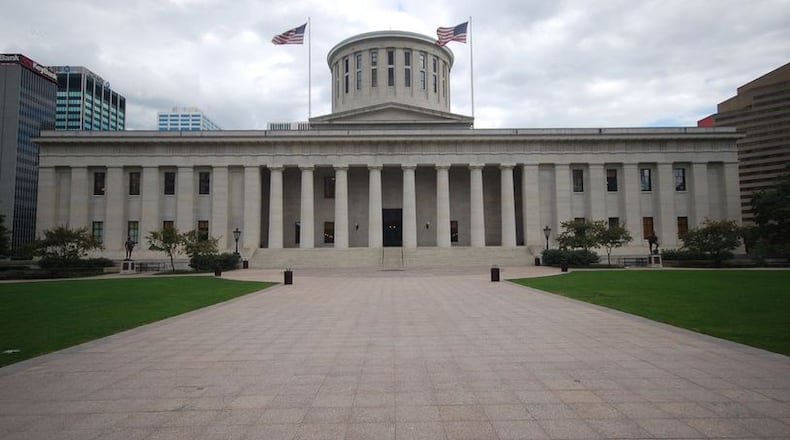Although the House and Senate convened early afternoon Wednesday, their sessions were punctuated with long sentimental speeches honoring departing members and even longer recesses for intra-party negotiations.
Following the House’s last recess, outgoing Speaker Bob Cupp, R-Lima, joked: “I note the time is 6 a.m. We still have all day, so we don’t have to rush anything.”
But the final session lasted only 10 minutes, long enough to accept the Senate’s changes to Amended Substitute House Bill 45 and send it on to DeWine.
That bill, sponsored by state Reps. Thomas West, D-Canton, and Bill Roemer, R-Richfield, started out as a two-month amnesty for 19 state and local taxes. Delinquent taxpayers could avoid subsequent penalties by paying the original tax due.
In committee and floor changes the tax amnesty morphed into a $6 billion spending bill. Most of that is one-time federal American Rescue Plan Act funding, but $1.1 million in state money is included to enable access to more federal Medicaid funding.
State Rep. Bride Rose Sweeney, D-Cleveland, praised many of the bill’s allocations but noted they were only made public at the last minute.
“Six billion dollars that didn’t have a single hearing in the Ohio House of Representatives,” she said.
The Coalition on Homelessness and Housing in Ohio criticized an amendment it says would raise property taxes on many affordable housing developments, regardless of rent restrictions on those units.
Sweeney urged DeWine to line-item veto that part of the bill.
Spending specifics include:
- $1.75 billion in school funding.
- $740 million for state financial reserves.
- $499 million for childcare.
- $350 million for workforce relief payments to nursing homes.
- $250 million for water and sewer grants.
- $161 million in emergency rental assistance.
- $150 million for lead abatement.
- $100 million for the state’s rural hospitals.
Smaller amounts, but still tens of millions, are earmarked for psychiatric care, behavioral health education, infrastructure and more.
The Ohio Poverty Law Center hailed the lead mitigation money.
“There are no safe levels of lead in the blood, and this sizable investment will move us closer to a future where Ohio children are free from the dangers of lead poisoning,” said Tim Johnson, the group’s senior policy advocate.
The Ohio Association of Foodbanks applauded the inclusion of $25 million for food relief. Food banks are serving 38% more households now than they did a year ago, the group said.
“Fortunately, with this appropriation, the State of Ohio and its elected leaders have told Ohioans that they believe food security is an essential ingredient for a strong and resilient workforce, thriving children and students, and an older generation that can age in place with dignity,” Executive Director Lisa Hamler-Fugitt said.
Ohio Right to Life celebrated a $3 million addition to the bill that will fund pregnancy resource centers — which direct women away from abortion-related services — and more money that will offer grants up to $20,000 for adopting children.
As the bill came up for its final vote, sponsor West said his request for $300 million for minority-owned businesses and organizations had been left out, and urged the next legislative session to fund them.
The House then adjourned until Dec. 21, when a session is scheduled “if needed.” The Senate also has a session scheduled that day.
About the Author

